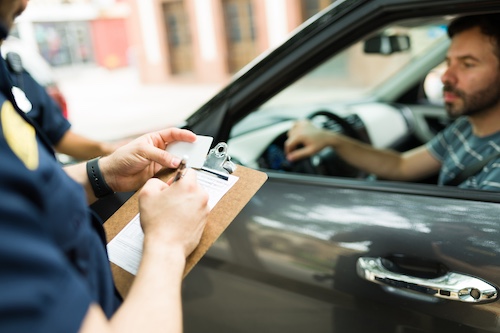Being in an auto accident as a passenger can be a scary and confusing experience. As a passenger, you may not know your rights or how to get compensation for your injuries. Whether it’s medical bills, lost wages, or ongoing medical treatment, you need to know the steps to take to protect your rights and get the compensation you deserve.
In this blog, we’ll cover topics such as how to file an insurance claim as an injured passenger, what you may be entitled to, the at-fault driver’s insurance, and why working with an experienced Atlanta car accident attorney can make all the difference in getting a fair settlement.
Determining Liability
When it comes to liability in a car accident with passengers several factors come into play. Knowing these will make a big difference in a compensation claim. Understanding liability is crucial for filing a successful car accident claim.
Who’s at Fault
The first step in determining liability is to identify the at-fault driver. This could be the driver of the vehicle you were in, another driver in the accident, or a third party. The circumstances of the accident will determine who is at fault. For example, if another driver ran a red light and hit your vehicle that driver would be at fault. Identifying the at-fault driver is essential for filing a claim with the at-fault driver’s insurance.
Police Reports and Witness Statements
Police reports and witness statements are key in establishing liability. After an accident, law enforcement will typically show up to the scene to get information. Their report will detail what happened which will help determine who was at fault. Witnesses can also provide statements that support your claim. Get contact information from witnesses when you can when pursuing compensation.
Comparative Fault
In some cases, comparative fault will apply. This means if the passenger is found to be partially at fault in the accident their compensation will be reduced. For example, if the passenger was distracting the driver at the time of the accident the court may find the passenger partially at fault.
What to Do After a Car Accident
Being in a car crash can be overwhelming as a passenger. But taking certain steps immediately after the accident will make a big difference in getting compensation later. Here’s what to do:
Get Medical Attention
Get medical attention as soon as possible even if injuries don’t seem apparent. Medical documentation is key to your case. It proves the connection between the accident and your injuries. This documentation can include emergency room visits, follow-up appointments, and ongoing medical treatment records. Proper medical documentation is crucial for claims to cover medical expenses, ensuring that you receive compensation for your medical costs.
Get Information and Photos
Get information from the scene of the accident. Take photos of vehicle damage, the accident scene, and any visible injuries. Get contact information from other drivers and witnesses. This will support your claim and help establish liability.
File a Police Report
Notify law enforcement to file an accident report. This will be an official record of the accident and will help determine fault. Get a copy of the report for your records and your attorney.
Notify Insurance Companies and File an Insurance Claim
After an accident, notify the insurance companies involved to initiate insurance claims. Report the incident to the at-fault driver’s insurance and your own. Give them the facts, not speculation about fault. This will start the claims process.
Types of Compensation
When a passenger is in a car accident knowing the types of compensation available is key. Compensation can be broken down into two main categories: economic damages and non-economic damages. Both are important in helping victims recover from their injuries and losses. Understanding these types of compensation is crucial for negotiating a fair car accident settlement.
Economic Damages and Medical Expenses
Economic damages are measurable losses that result directly from the accident. These can be calculated with ease as they are actual financial costs to the injured party.
- Medical expenses and ongoing medical treatment: This includes all medical bills related to the accident such as hospital stays, surgeries, medications, and rehabilitation costs. If you need ongoing medical treatment those costs will also be included.
- Lost wages and rehabilitation costs: If your injuries prevent you from working you can claim lost wages. This includes past and future income. Rehabilitation costs which may include physical therapy or other recovery services are also included.
- Property damage liability and other quantifiable losses: If your personal belongings were damaged in the accident such as clothing or electronic devices you can claim for those losses. This section covers all tangible losses resulting from the accident.
Non-Economic Damages
Non-economic damages are more subjective and reflect the emotional and psychological impact of the accident. These are not measurable but are just as important for the victim’s recovery. Non-economic damages are crucial for car accident victims to recover from the emotional and psychological impact of the accident.
- Pain and suffering: This is physical pain and emotional distress caused by the accident. Victims may experience significant discomfort, anxiety, or depression as a result of their injuries.
- Permanent disability or disfigurement: If the accident results in long-term disabilities or visible scars, compensation can be claimed for the impact these have on your life.
- Loss of enjoyment of life and emotional distress: This includes being unable to do things you used to enjoy, such as hobbies, sports, or social activities. Emotional distress can also include anxiety, depression, or loss of companionship as a result of the accident.
How Compensation is Calculated
Knowing how compensation is calculated after a car accident is key for injured passengers. Many factors come into play.
Factors that Affect Compensation Amounts
- Severity of Injuries and Long-Term Consequences: The nature and extent of your injuries will impact compensation. Serious injuries such as fractures or traumatic brain injuries will result in higher payouts. Long-term effects such as chronic pain or permanent disability will also be considered. The more severe the injury the more likely it will result in higher compensation.
- Quality of Documentation and Evidence of Losses: Documentation is key. Medical records, accident reports, and witness statements will support your case. The more clear the evidence of your injuries and losses the better your chances of getting fair compensation. This includes medical bills, proof of lost wages, and any rehabilitation costs.
Payout Ranges
- Minor Soft Tissue Injuries: For minor injuries such as minor sprains or strains compensation will vary. Payouts for these injuries can be a few thousand to tens of thousands depending on the case.
- Permanent Disabilities or Severe Trauma: For permanent disabilities or severe trauma compensation can be hundreds of thousands to millions. These cases include lifetime medical care, lost earning capacity, and significant pain and suffering.
Additional Factors
When it comes to passenger compensation after a car accident there are many factors to consider. Knowing these will help you navigate the claims process better.
Comparative Fault and How it Affects Compensation
In Georgia, the concept of modified comparative fault plays a significant role in determining compensation after a car accident. Under Georgia law, if a passenger is found to be partially at fault for their injuries, such as not wearing a seatbelt, their compensation may be reduced. Georgia follows a 51% rule, meaning that if the passenger is found to be 50% or less at fault, they can still recover damages, but the compensation will be reduced in proportion to their degree of fault.
Deadline to File an Injury Claim
Each state has a time limit, known as the statute of limitations, to file a personal injury claim. In Georgia, the limit is 2 years from the date of the accident. Missing this deadline will mean you lose your right to compensation. So act fast and consult a personal injury lawyer to make sure your claim is filed on time.
Legal Options for Passengers
Passengers involved in a car accident have the following options:
- File a Personal Injury Claim or Lawsuit Against the At-Fault Driver: If the driver of the vehicle you were in or another driver caused the accident you can file a claim against their insurance or sue them. This will allow you to seek compensation for medical bills, lost wages, and pain and suffering.
- File a Claim with Your Own Insurance Company: Depending on the circumstances you may also file a claim with your own insurance company if the at-fault driver is uninsured or underinsured. This will give you a quicker resolution to your claims process.
Contact an Experienced Atlanta Car Accident Lawyer ASAP!
If you’ve been injured as a passenger in a car accident, don’t navigate the complex claims process alone. Our team at Atlanta Metro Law will fight to protect your rights, handle negotiations with insurance companies, and guide you every step of the way.
Contact us at 864-894-2045 for a free case review today!





